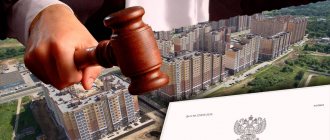Among the many functions assigned to the police in our state, the most important are the prevention of criminal acts and the protection of public order. For this purpose, police officers are given broad powers, including such a measure of influence on offenders as detention. Detention means restricting a citizen’s freedom for up to 48 hours.
When detained, the violator may resist the police, most often in cases where he considers it illegal. Therefore, it is important to know who the police have the right to detain, how the procedure takes place, and what rights detainees have. All this information is set out in the Law “On the Police”, the Code of Criminal Procedure and the Code of Administrative Offenses of the Russian Federation.
What powers does the police have?
To ensure public safety and law enforcement, police officers are vested with a number of powers. They are listed in Federal Law No. 3 “On the Police,” which also specifies the right to:
- Checking citizens' documents.
- Possibility of stopping and inspecting a vehicle.
- Establishing the identity of a citizen.
- Conducting searches and interviews.
- Restriction of movement and delivery of a citizen to the police station.
- Request to leave the crime scene.
- Demand to stop illegal actions.
- Physical impact and use of special equipment.
- Delivery of citizens under the influence of alcohol or drugs to the hospital;
- Protection of persons taken under protection.
- Checking documents in organizations.
The given powers are valid while the police officer is on duty and must be justified. To check documents or inspect a car, a police officer must have grounds.
Note!
A government representative can always refer to a citizen’s suspicious behavior or orientation.
Legality of claims
The detention of persons committing offenses of this nature is associated with certain law enforcement features:
- valid presumption;
- statutory police requirements;
- using specific wording;
- the existence of similar characterizing factors in Articles 20.1 and 19.3 of the Administrative Code;
- lack of certainty in understanding the wording “resist”, “disobey”, “obstruct”, “do not comply”;
- the presence of grounds for applying the norms of criminal law to the perpetrator.
Administrative legislation provides for liability for disobedience to a police officer under Article 19.3 of the Code of Administrative Offenses of the Russian Federation.
The police officer today is empowered to protect civil society from illegal activities. The federal law determined the specific rights of an employee of the Ministry of Internal Affairs:
- Present legal requirements to individuals and other persons to prevent illegal activities.
- Carry out verification of identity documents and documents granting specific persons any powers.
- Use the transport of organizations and individuals to prevent criminal acts, remove people from a dangerous zone or transport them to medical institutions.
- Make demands on those guilty of committing illegal actions, not to leave the scene of the crime, to arrest and subsequently place such persons in police departments.
- Use and apply available weapons, as well as physical force.
A difficult situation arises when there are powers to suppress illegal actions related to disobedience to the demands of a police officer performing the functions of maintaining order.
This situation is associated with determining the relationship between the number of civil rights and the existing responsibilities of government officials. A deviation to the side will lead either to the abuse of power or to the dominance of the population over law enforcement agencies.
All the negativity of manifestations of insubordination to a representative of law enforcement agencies is primarily directed at employees of the Ministry of Internal Affairs, who have daily contact with citizens in the service:
- local police;
- patrol officers;
- traffic police officers.
From year to year, the number of disobediences to these categories does not decrease. The deliberate nature of forceful insubordination makes such offenses dangerous for society.
What is the penalty for resisting a police officer under the Criminal Code of the Russian Federation?
There is no specific article for resisting a police officer in the Criminal Code of the Russian Federation. It is in the Code of Administrative Offenses, which provides for punishment for disobedience to the legal request of an employee. The sanction will be 500 - 1000 rubles, or administrative arrest for up to 15 days.
You are advised by the best qualified lawyers
Free: Our lawyers provide free initial consultation on any legal issues. 90% of cases are resolved with one free consultation.
24/7: real estate via online chat, or call the hotline 24 hours a day, 7 days a week
If disobedience was accompanied by petty hooliganism, the fine will be 1000 - 2500 rubles, and the term of arrest remains unchanged, amounting to 15 days. These measures are given in Art. 19 and 20 Code of Administrative Offences.
Criminal punishment for resisting a police officer is established by several articles of the Criminal Code of the Russian Federation, but the qualification of the act is based on other grounds. For example:
- hooliganism, that is, a gross violation of public order accompanied by resistance to a police officer, is punishable by up to 7 years in prison. The relevant provisions are provided for in Art. 213 of the Criminal Code of the Russian Federation;
- publicly insulting a police representative is fraught with a fine of up to 40,000 rubles, compulsory or correctional labor for up to 1 year. Measures are established by Art. 319. Criminal Code of the Russian Federation;
- the threat of violence and the use of violence against a police officer, respectively, entail a fine of up to 200,000 rubles or imprisonment of up to 5 years. If the act poses a real danger to the life and health of the employee, the punishment increases to 10 years. Sanctions are provided for in Art. 318 of the Criminal Code of the Russian Federation;
- Encroachment on the life of a police officer is punishable by life imprisonment; appropriate measures are provided for in Art. 317 of the Criminal Code of the Russian Federation.
Criminal liability
The rules of criminal liability for a person who resists the moment of his arrest by police officers are applied only in exceptional cases. These cases are expressed in situations where police officers were actually in real danger, for example:
- if the detainee put up an active struggle and used physical force;
- if a police officer was harmed;
- if a law enforcement representative received real threats to their lives, etc.
Criminal liability may be established in other cases if the court decides that there is a clear need for this. In this case, the punishment is expressed in the following measures:
- Imposition of a fine in a certain amount, as well as the establishment of mandatory correctional labor.
- A large fine, as well as correctional labor for up to 5 years and arrest for up to six months. These measures are applied if the health of a police member, or the health of his loved ones, has been caused obvious harm.
- Imprisonment - for up to 10 years, if the damage caused to health was recognized by the court as grave.
The most severe penalty - the longest possible prison sentence - will be imposed if, during the arrest of the suspect, the death of a police officer occurs as a result of resistance.
In most provisions of the Criminal Code of the Russian Federation, the very recorded fact of providing active resistance to police officers is an aggravating circumstance, as well as a qualifying feature. It is in the presence of this fact that more serious penalties can be applied to the guilty person.
Existing judicial practice shows that during the classification of this type of crime, the parties may have disputes regarding the very fact of resistance. Naturally, the suspect is trying to prove that nothing of the sort happened and that all the accusations against him are completely groundless. In this case, the court considers the protocol, which is always drawn up by law enforcement officers in the performance of their official duties.
The guilty person, in turn, has the right to refer to unlawful actions of authorized persons. As a rule, such actions can be expressed in the use of excessive physical force, beatings, non-compliance with the current order and existing norms. If this fact is confirmed in court, the judicial authority has the right to cancel previously established penalties against the perpetrator.
Author of the article
Dmitry Leonov
Work experience 15 years, specialization - housing, family, inheritance, land, criminal cases.
Author's rating
721
Articles written
712
about the author
Resisting arrest
The actions of a citizen may be classified as hooliganism or insult to an employee. Extremely correct behavior will help to avoid such developments. Under no circumstances should you shout loudly, use obscene language, express insults, or make sudden movements.
Insubordination and resistance are expressed in:
- Refusal to follow the employee’s orders: lie down on the ground, throw down the weapon, raise your arms above your head.
- Refusal to stop criminal activities.
- The use of retaliatory force and weapons.
- Trying to escape from a police officer.
Any of the listed actions is aggravating when imposing punishment by the court, and immediate measures are given in the articles listed above.
Measures to prevent disobedience
Identification and prevention of such crimes in the interests of society serves as an indicator of the state of power in the state.
Preventive measures include the following areas:
- reducing the number of citizens capable of providing any resistance to police officers by improving the well-being of the population;
- preventive work with persons previously held accountable for such manifestations;
- impact on professional deformation of police officers;
- ensuring measures of inevitability of punishment for such offenses;
- using the power of the media to convey the facts of punishment for those responsible for opposing the demands of the police.
Social measures are of great importance in the complex of measures to prevent counteractions to police officers.
A decrease in the number of resistance and disobedience occurs in the following cases:
- normalization of the social component of public life;
- eliminating legal illiteracy and culture of citizens;
- formed positive opinion in society about the activities of the police.
One should remember the main conditions for the emergence of insubordination, which lie in the area of the social and spiritual-cultural level of social development.
The circumstances of the commission of the acts in question are closely related to the criminal component of preventive measures:
- fight against criminal manifestations;
- exclusion of negative factors in the education of the individual;
- influence on the psychology of the subject committing such offenses.
No matter how stable the strong-willed component of character, professional readiness, provision of a police officer, the variety of situations during the period of service does not exclude the possibility of cases of opposition to legal requirements.
What to do if a police officer acts illegally
The Law “On the Police” strictly regulates the actions of employees. They are prohibited from using excessive force, beatings, and unlawful actions against citizens. When making an arrest, a police officer is obliged to:
- Introduce yourself and show your official ID.
- Report the reason for the detention, justifying your actions.
- Explain to the citizen his rights and responsibilities: calling loved ones, legal support.
Detention is a restriction on the movement of a citizen for a period of 3 to 48 hours. He must be provided with safe detention, medical care (if necessary), food (depending on the length of detention in the station).
Violation of any of the listed points is the basis for a subsequent complaint against the employee’s actions. The addressees are the territorial divisions of the Internal Security Service of the Police and the Prosecutor's Office.
Note!
During the detention process, it is important to remain calm, not to raise your tone and resort to physical force. All this will only make the situation worse, even if the policeman is initially wrong.
When checking documents, the passport is shown in your hands. The employee has no right to seize it, as indicated by the memo on the last page of the document.
Features of investigative actions
If the victim of a crime is a police officer, the investigative steps will be somewhat different from the form of investigation used in cases of bodily injury or murder of other citizens. First of all, the investigator sets himself the task of establishing whether there is a connection with the professional activities of the victim. Often, attackers, understanding the severity of the sanctions for attacks on a police officer in uniform, watch over him on his day off when he is not on duty. The investigator leading the case, when putting forward versions of the event, is obliged to find out:
- whether the act was planned, determine the level of its preparedness and other features;
- the nature of the victim’s professional activity, study the latest cases in which the victim was involved, perhaps this is where the clue and direct indication of the culprit lies;
- whether the victim had previously received threats of physical harm, and whether he had conflicts with someone;
- reasons for the police officer’s failure to take self-defense measures, because if a police officer died or was beaten, he had the right to use firearms or other special means in the process of receiving injuries.
The investigator must also conduct an analysis of the identity of the injured police officer, his living conditions and other points to determine the motives for the act, which may or may not be related to official activities.
All facts discovered in the investigation are recorded in the protocols and attached to the indictment. The case is then sent to court and proceedings begin. When passing a sentence, the judge will take into account, as in all other cases, mitigating circumstances of the crime and, of course, aggravating factors.
In most cases, crimes involving the health and life of police officers are carried out by criminals under the influence of alcohol or drugs. Being in an adequate state, people understand the severity of the consequences, and never dare to confront law enforcement officers.
The bodies of the Ministry of Internal Affairs of the Russian Federation constantly keep records of violations of the law and crimes against the public administration system are subject to special control. According to statistics, more than 10 thousand cases of attacks have been recorded against law enforcement officers since the beginning of this year, while the bulk of them occurred while the victims were performing their direct duties. This situation requires employees of competent structures to carry out the prevention of crimes of this category.
Prevention of crimes against law enforcement officers can include more stringent training of personnel, as well as tougher responsibility of police officers for the use of weapons. A report for each shot will help reduce cases of revenge by relatives of the criminal against the policeman who used a weapon on the latter.
Revenge is the main reason for attacks and threats against police officers. People, having encountered active actions of the police against themselves or their relatives, consider it unfair that some people can use special means for self-defense, while others cannot. With their threats and attacks, they themselves are trying to restore “justice,” but this is not necessary. Only the court has the right to administer justice; no one will ever be found guilty without a preliminary investigation and trial. It is stupid to blame the police for catching a criminal; they are doing their job and for this they deserve respect, not contempt, threats and the use of force.
What actions can lead to liability
Punishment follows for refusal to comply with requirements, namely to show documents, follow a police officer to the department or open the trunk of a car and active actions. They are expressed in words and actions (grabbing the policeman by the arms, pushing, hitting).
If in the first case, the case most often costs a small fine of up to 1000 rubles or 15 days of arrest, then insult and physical violence against an employee entails criminal punishment.
The law requires a citizen to comply with the demands of a government representative and only then (if he disagrees) to challenge them by filing complaints and lawsuits.
Rights of traffic police officers
According to statistics, citizens of the Russian Federation communicate more often with traffic police officers than with other representatives of law enforcement agencies. In such cases, failure to comply with legal requirements is quite common. The law gave traffic police officers the following rights:
- document verification is carried out from persons in respect of whom there are suspicions of committing criminal acts;
- request documents to carry out the necessary checks;
- require citizens to leave the scene of the incident;
- accompany citizens to the hospital and other institutions in case of a real threat to their life and health.
Having stopped a driver on the road, the traffic police representative, before carrying out any actions, must:
- Introduce yourself loudly and clearly, stating your first and last name, title;
- present your official ID for review;
- explain your requirements.
If the behavior of the traffic police inspector is unlawful, the driver has the right to file a complaint with higher management or go to court.
Compensation for illegal detention
The criminal law does not provide compensation for illegal detention by police officers. However, it is provided for by civil law. If you were illegally detained by police officers or taken into custody, you have the right to go to court on the basis of paragraph 1 of Article 1070 of the Civil Code of the Russian Federation
for compensation for material damage caused by law enforcement officers, as well as on the basis of
Articles 1100 and 151 of the Civil Code of the Russian Federation
for compensation for moral damage.
The corresponding statement of claim can be filed either as an independent civil claim or as a civil claim in criminal proceedings.
Important! The amount of compensation for illegal detention can reach 15,000 rubles. . In the statement of claim, you indicate yourself as the plaintiff, the defendants are the persons who carried out the detention, describe the circumstances under which this detention was made and set out your demands for recovery from the defendants of compensation for the obviously illegal detention of material and moral damage
In the statement of claim, you indicate yourself as the plaintiff, the defendants are the persons who carried out the detention, describe the circumstances under which this detention was made and set out your demands for recovery from the defendants of compensation for the obviously illegal detention of material and moral damage.
To this application you attach a copy of it according to the number of parties to the case (defendants, interested parties), put a date and signature and submit it to the court in which the proceedings in the relevant criminal case are being carried out or at the place of residence of one of the defendants in the event that the criminal case is not was excited.
ATTENTION! Due to recent changes in legislation, the information in this article may be out of date! Our lawyer will advise you free of charge - write in the form below. .
Disobedience to a traffic police officer
Car traffic in the country is growing inexorably. Moscow is famous for its eternal traffic jams, but also for its regular traffic accidents. Traffic police officers often stop car owners for one reason or another. Oddly enough, many motorists ignore the requirements of inspectors. This is a violation of the law, and immediately we wonder what punishment to expect?
Traffic regulations state that the driver is obliged to stop at the request of a traffic police inspector. If these requirements are ignored, the driver in 2017 will face a fine of 500 to 1000 rubles for this violation. The traffic police officer has the right to independently determine the amount of the fine.
The fact that punishment follows immediately is not surprising, since according to statistics, disobedience to a traffic police officer occurs due to the fact that:
- the driver is drunk;
- the driver tries to leave the scene of an accident;
- the driver violates the speed limit.
The punishment for disobeying a traffic police officer may vary depending on the situation. This can be not only a fine, but also an administrative punishment in the form of arrest for 15 days, or even a criminal one, if, in addition to not stopping on demand, there were insults or the use of physical force towards the authorized person.
It also happens that the driver, while performing a complex maneuver, simply did not notice that the patrol had given him a signal to stop. In this case, the car owner is in no danger. if he deliberately does not comply with the requirements of the traffic police, pursuit will begin and other patrols will be involved, having the right to stop the car forcibly. It's better not to let it come to this.
Distinctive Marks of Disobedience and Resistance
The main difference between disobedience and resistance to a representative of authority, which is a police officer, is the degree of responsibility. There is a fine line in understanding when one illegal action develops into another, and it is not always possible to clearly classify the actions of the perpetrator.
Disobedience is understood as a clear unwillingness to fulfill legal requirements or ignoring them in principle, for which punishment is provided under administrative law.
Article 19.3 defines cases of prosecution. A feature of such unlawful actions is considered to be a deliberate, deliberate nature, expressed in repeated refusal in rude form to comply with the police request when the officer is performing official duties.
Confirmation that an employee of the Ministry of Internal Affairs is on duty is: a police officer uniform, a badge of the established form, and a service ID.
Disobedience to a requirement based on the law is divided according to the type principle:
- active manifestations;
- passive manifestations;
- group committing;
- open appeals;
- dissemination of false information that led to destabilization in society.
In practice, disobedience provided for by administrative legislation is closely related to the criminal consequences arising from this offense against law enforcement officials.
The main conditions for bringing those responsible for failure to comply with the order of a police officer:
- The employee entered the service to perform the functions of ensuring the established order in society.
- Warning the offender of the consequences of failure to comply with lawful instructions given in a convincing manner.
- The subject refuses to comply and at the same time knows that the order is being presented by a representative of the authorities.
When determining a qualifying characteristic, the status of the official whose requirements are not fulfilled is necessarily established. In accordance with Article 25 of the Police Law, a police officer is considered to be a person performing official duties as a police officer and having a special rank.
Resistance is characterized by intentional, proactive actions aimed at impeding police law enforcement activities. The danger is that there is a threat to society and the authority of representatives of security forces is belittled. In such manifestations, the source pushing for illegal actions is the antisocial, criminal component.
The causal component of forceful counteraction consists of the following points:
- insufficient practice of bringing to justice due to the lack of obviousness of the acts;
- the conviction that the perpetrator has the right to actively resist the police without thinking about the consequences.
Disobedience and resistance are a consequence of the realization of the desire to violate the law, to avoid punishment for committing any other illegal actions or for having prohibited items on oneself.
The social and psychological status of the persons committing these actions is of a pronounced antisocial nature with a marginally aggressive form of personality, focused on the physical resolution of conflicts and hostility towards police officers.








